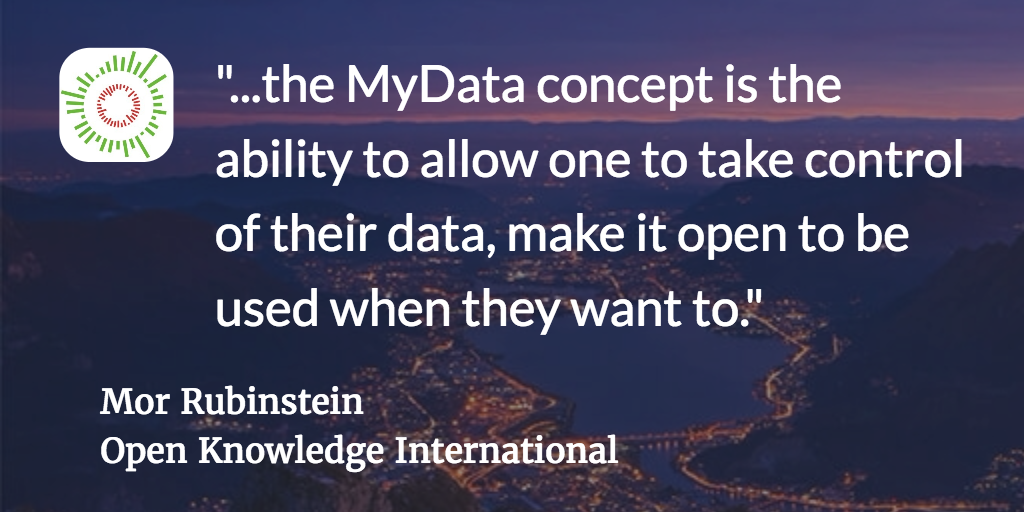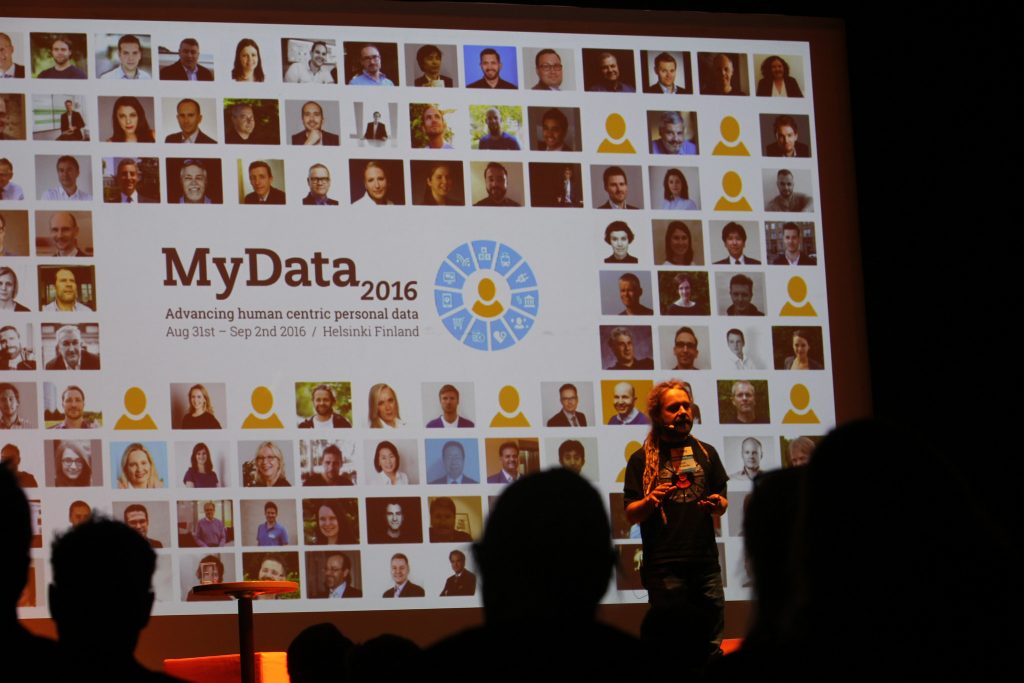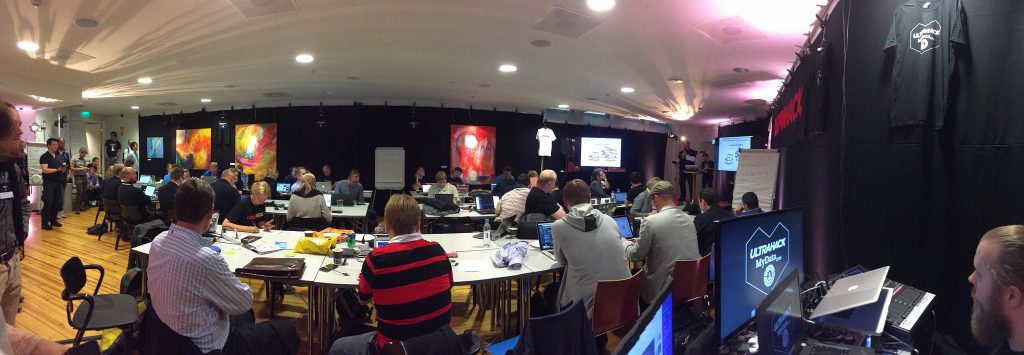This piece is the final installment of a three-part series of posts from MyData 2016 – an international conference that focused on human-centric personal information management. The conference was co-hosted by the Open Knowledge Finland chapter of the Open Knowledge Network. Part 1 looked at what personal data has to do with open data and Part 2 looked at how access to personal data is linked to wider social issues.
The MyData2016 conference came to an end a couple of weeks ago, and we are now even past the International Open Data Conference, but given the discussions that emerged, it is clear this is only the beginning of something bigger. While MyData is still a vague concept, the conference started many processes that might evolve into something tangible. During the conference I met participants that enlightened me about the MyData concept, reminding that conference is more than panels and workshops, but also about the human connection.

As I described in my first blog post in the series, I was keen to understand what the connection was between MyData and open data. Now, two weeks later and hours of going over the materials, I still have more questions than answers. Open Data is a techno-legal definition of data; MyData is still less clear. The borders between ‘My Data’, private data, and public data are sometimes blurry and undefined, and there is a need for regulation and open debate about these issues. However, the open data world gives inspiration to the MyData world, and MyData conference was an excellent opportunity for the two communities to learn from one another and think ahead.
“The borders between ‘My Data’, private data, and public data are sometimes blurry and undefined, and there is a need for regulation and open debate about these issues.”
What is MyData? One of the terms that were thrown in the air was “The Internet of Me.” At first, this sounds to me a very millennial description (which brings, for me at least, a bad connotation). Lucie Burgess, from The Digital Catapult, shed a different light on the term. This, in her view, means that we put people, not companies or technical terms, at the center of the internet.
To me, it reminded me of Evgeny Morozov’s concept of ‘Internet-centric’ – when we give the term ‘The internet’ life of its own. When we give the internet life, we sometimes forget that humans are creating it actively, and other parts of the net are passive, like the data that we provide to companies just by using their services. We forget that the internet is what it is because of us. The ‘Internet of Me’ puts the ordinary citizen at the heart of that beast we call ”the internet”. It is a decentralized shift, the idea that we can control our data, our information.
Lucie about Internet of me:
 Credit: Pouyan Mohseninia
Credit: Pouyan Mohseninia
What does it mean though when it comes to different types of data? Here is an example from one of the main promises in the field of MyData – the health sector. Health data is one of the most delicate data types out there. Having MyData as a way to make data sharing in the health sector safer and more responsible can assist many to unlock the promise of big and small health datasets to make not only services in the field better but also to improve research and human lives.
Health data raise some important questions – Who owns the data in official health registries? What is the line between MyData and public data? The way is still long, but the conference (and the Ultrahack) helped to shape some new thinking about the topic and look for new use cases.
Here is Antti Tuomi-Nikula, from THL, the Finnish Ministry of health and welfare, speaking about the potential of MyData and the answers we still need to answer:
The question of the border between personal and public data is also a concern to governments. In the last decade, many governments at different levels of jurisdiction are going through efforts to improve their services by using data for better policies. However, government personnel, in particular, local government personnel, often do not have the knowledge or capacity to have a better data infrastructure and release public data in an open way. MyData therefore, looks like a dream solution in this case. I was excited to see how the local municipalities in Finland are already examining and learning about this concept, taking into considerations the challenges this brings.
Here is Jarkko Oksala, CIO of the city of Tampere, the second biggest city in Finland speaking about MyData, and what the open Data community should do in the future:
On the one hand, the MyData concept is the ability to allow one to take control of their data, make it open to be used when they want to. When it comes to the open data community, MyData gives us all another opportunity – to learn. Open Data and MyData are frameworks and tools, not the ends. It was good to see how people come to expand their horizons and acquire new tools to achieve some of our other goals.
 Ultrahack in action. Credit Salla Thure
Ultrahack in action. Credit Salla Thure
One of the great side events that help to facilitate these learnings was the UltraHack, a three-day hack that tried to make the very vague concept of open data into actual use. Interesting enough, a lot of the hackathon work involved some open data as well. Open Knowledge in Finland is an expert in organizing hackathons, and the vibrant, energetic spirit was there for the whole three days.
These spirits also attracted visitors from Estonia, who crossed the bay and came to learn about hackathons and the different types of data. It was very surprising for me to see that Estonians see Finland as a place to learn from since I assumed that because Estonia is known for its progressive e-gov services, it would similarly excel at creating an open data empire. I guess that the truth is much more complicated than this, and I was very lucky to learn about the situation there. We are also excited to have our first Open Knowledge event in Estonia a couple of weeks ago to discuss setting up a group there. This would not come to life without the meetings we had in Helsinki.
Here is Maarja-Leena Saar speaking about this topic with me:
- The Open Knowledge community indeed came to learn. I met School of Data Fellow Vadym Hudyma from Ukraine, who works with the Engine room about privacy and responsible data. Vadym brought up many important points, like the fact that we should stop looking at the binary of consent of giving personal data, and how we need to remember the people behind the data points we gather.
“We discussed what we want to do with our data and the question of privacy and the willingness too of people to share and to create open data from private data.”
I also met members from Open Knowledge chapters in Japan, Switzerland, Sweden, and Germany. They came to share their experiences but, also to learn about the different opportunities of MyData. For me, it is always good to catch up with chapters and see their point of view on various topics. Here are some useful insights I got from Walter Palmetshofer from OKF DE, who started to think about MyData concept already in 2011. We discussed what we want to do with our data and the question of privacy and the willingness too, of people to share and to create open data from private data.
More of my conversation with Walter here
All in all, I am grateful for the opportunity I had to go and learn at MyData 2016. It gave me a different perspective on my usual work on open data and open government and allowed me to explore the internet for me. This is, I hope, just the beginning, and I would like to see what other members of the network have to say about this topic.
A big thank you to the members of Open Knowledge Finland and in particular Salla Thure, who hosted me so well and helped me to find my way around the conference. Special thanks also to Jo Barratt, Open Knowledge International’s own audio guru for editing my interviews. Watch this space for his audio blog post from the GODAN summit!
360Giving Data Lab and Learning Manager, ex OKF International Community Coordinator








